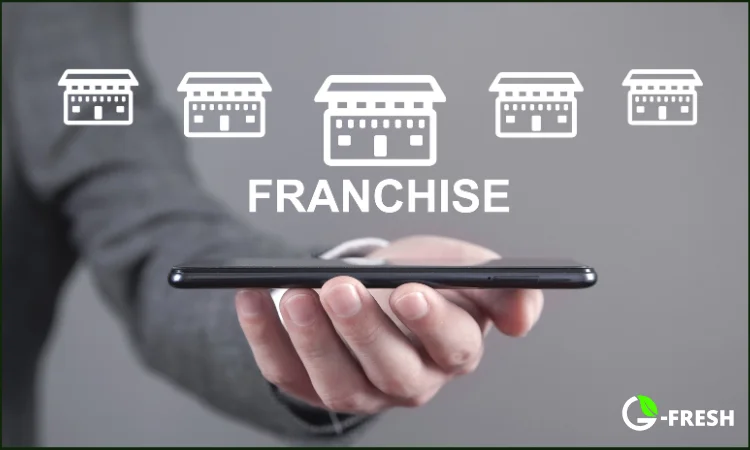It was the never-to-forget Covid-19 in 2020 when we were locked in our homes and everything was shut down. But also in that critical time, Grocery stores were open (even for a limited time).
The point is that franchise for grocery stores are never going to be off the rail. Why? Because they provide everyday essentials to the consumers. They are profitable, have a variety of product options, and provide multiple ways to earn money.
But you can’t just hop on any grocery franchise and hope for the best results. Like any business, you must research and get the right franchise for grocery stores.
In this blog, we will discuss everything you must know before buying a Supermarket franchise. So read the blog and start making notes.
Things to Know Before Buying a Franchise:
Below, we will discuss all the factors you must know before buying a Supermarket franchise. It’s essential because missing them may cause you trouble later. They may hinder your operational & financial procedures. Check them all!
1. Understand the Franchise Model:

A grocery supermarket franchise always works under a well-established name like G-FRESH. They have a proper well-defined system of products, working policies, ongoing support, employee hiring & training, and business methods.
Moreover, they sometimes give you the flexibility to:
- Create offers,
- Festive rewards,
- Loyalty programs, and
- Marketing.
This means you don’t need to start from scratch. But here is the catch! There are several franchise models and you need to choose one among them. Read below:
- Company Owned Company Operated.
- Franchise Owned Company Operated.
- Franchise Owned Franchise Operated.
- Company Owned Franchise Operated.
Key Benefits:
- Established brand recognition and customer trust
- A proven business model.
- Ongoing operational support and training
- Access to bulk purchasing and competitive pricing.
2. Do Your Research: Market & Competitors:

Before you hop onto any franchise, dig deep into the local market. Understand that you’re not going to serve the whole city.
Instead, focus on your local area and what the land promises to you. Every place has something special and you need to find out WHAT!
Questions to Ask:
- Are there already many grocery stores in your area?
- What are the shopping habits and preferences of local customers?
- Is there a demand for specialty products (organic, local, international foods)?
Why does it matter?
Too much competition may make it hard for you to see success. Understanding your local consumer trends (like a preference for organic or ready-to-eat foods) helps you with things like:
- Stock the right products or
- Create the right combo
- Provide the right offer.
Pro Tip: Visit other franchise locations as a mystery shopper. See how they operate and deal with customers.
3. Evaluate Franchise Opportunities:

Not all franchises offer the same things. We have already discussed the different models for franchise for grocery stores. Here is more- they offer different levels of support, ownership, and guidance to franchisees.
So what to do?
Compare different brands in & out.
| Factor | What to Check |
| Brand Reputation | Is the brand well-known and trusted? |
| Franchise Fees | How much are the initial investment and ongoing fees? |
| Support & Training | What kind of help do you get before and after opening? |
| Product Range | Can you offer products that fit your market? |
| Supplier Network | Are you locked into certain suppliers? |
| Profit Margins | What’s the typical profit after fees and royalties? |
4. Understand The Legal & Financial Procedures:
Before you invest in a franchise for grocery store, understand all the legal and financial procedures in & out. This is essential as all your wealth transactions are dependent on it. Read all the mini grocery store budget documents very carefully & thoroughly.
Here are some of them for you:
Franchise Disclosure Document (FDD): This document features all the details about the franchise such as
- Supermarket franchise costs
- Obligations
- Risks
Always read it carefully and if possible, hire a business lawyer to review it.
Financial Projections: Here is a Pro Tip- don’t just trust rosy numbers from any franchisor. Don’t forget to check the solid proof behind any profit claims.
Royalties & Fees: Know exactly how much you’ll pay in royalties (a percentage of sales or a fixed fee). Also, plan ahead of how this impacts your business at the worst.
5. Location, Location, and Location:

Where you set up your supermarket franchise for grocery stores can make it a success or failure. Make sure you have a good place to start your business. People want convenience and if your store isn’t offering this, nothing will work!
The best location for supermarket franchise you should target:
- Near residential areas, schools, or public transport.
- High foot traffic and easy accessibility.
- Good visibility and nearby parking areas.
Also, don’t forget to follow all the local zoning laws and operation hour allowance.
6. Understand the Operations In & Out:
Once you are done with the above, look for store operations and guides. You will operate the whole store so make sure to understand how the company supports its franchisees and their stores.
But what exactly to look for?
- Guidelines for store layout
- Inventory management,
- Staff training.
- On-going support.
- Point of Sale.
- Customer Service policies.
7. Stay Updated in Trends:
The grocery industry is always changing with new products. Make sure you follow the right trends in the industry. Check the following:
- New food trends (like plant-based or gluten-free products)
- Customer preferences
- Innovations or new delivery options
8. Know the Risks and Rewards:

Here is one of the biggest reasons for you to take a breath and think twice before investing in a franchise. Every business has risks & rewards and franchise business is no different. You need to evaluate them and think whether they are suitable for you or not. Read below:
Pros:
- Lower risk than starting an independent store
- Professional on-going support.
- Better profits with a proven system
Cons:
- Less freedom to make changes or try new ideas
- Ongoing fees and royalties
- Success depends on both your effort and the franchisor’s reputation.
Quick Comparison Table: Franchise vs Independent Grocery Store:
| Feature | Franchise | Independent Store |
| Brand Recognition | High | Low (must build from scratch) |
| Start-up Support | Extensive (training, systems) | Little to none |
| Supplier Access | Bulk pricing, established deals | Must negotiate on your own |
| Flexibility | Limited (must follow the rules) | High (can set your own policies). |
| Risk Level | Lower (proven model) | Higher (unproven model) |
Conclusion:
Buying a franchise for grocery store is not EASY! You need to do the right research and pre-plan your operations. It is essential for you to understand whether a supermarket franchise grocery store is good for you. After all, not all businesses are suitable for everyone.
In this blog, we have discussed these points briefly. For a quick recap, check the following:
- Mini Grocery Store Budget
- Franchise Models
- Legal & Finances.
- Locations
- Operations
- Trends
Take your time, ask the right questions, and make sure the franchise fits your goals.
Looking for a trusted supermarket franchise store to start your business? Connect with G-FRESH: the best supermarket franchise in India.
Frequently Asked Questions (FAQs):
Q1. How important is brand reputation in choosing a supermarket franchise for grocery stores?
Ans: A supermarket franchise with a brand value influences customers. It wins their trust easily and attracts them to buy.
Q2. What types of fees will I need to pay as a franchise?
Ans: Though all supermarket franchises have their personal fees policies, here are some common fee systems you might need to pay.
- Franchise Fees.
- Royalty Fees.
- Marketing & Advertising Fees.
- Hiring & Training Fees.
- Security Fees, etc.
Q3. What is the average mini grocery store budget?
Ans: It varies from franchise to franchise. Also, several factors affect the budget such as location, size, and setup cost, marketing fees etc.
Q4. How should I handle the legal procedures of owning a franchise?
Ans: The best you can do is to hire a business lawyer who can simplify all the complex legal procedures for you.
Q5. Can I customize the product offerings in my supermarket franchise?
Ans: It varies from franchise to franchise. Some franchises may allow product selection and store design. However, not all franchises do that.
Q6. Is there any additional costs I should know?
Ans: Yes, there are possible additional costs that you should know prior to your investment. Here are some examples.
- Renewal Fees.
- Mandatory Purchases.
- Technology Fees, etc.
